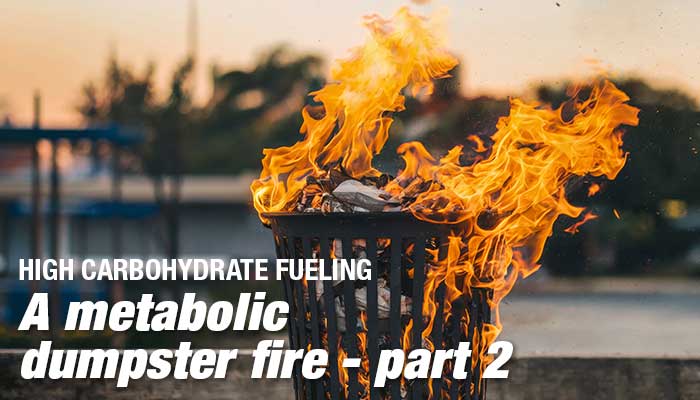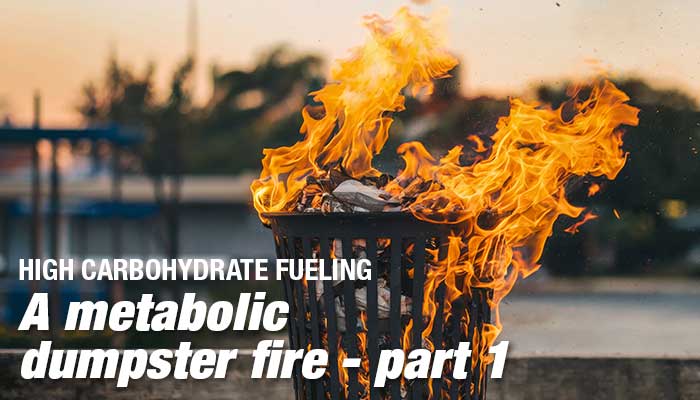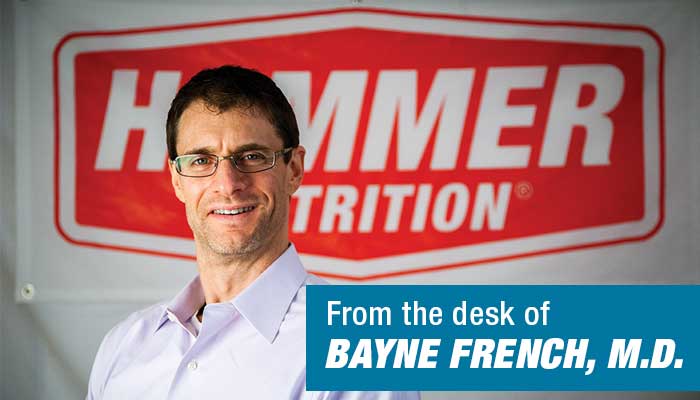
Your Off-Season Weight Control Weapons
BY STEVE BORN
INTRO: This is the beginning of the time of year when keeping those unwanted pounds off can be tough. Many of us are in off-season mode, meaning our time spent exercising has decreased. Add to that the upcoming holidays, where consuming lots of food—including those delicious desserts—is the norm. All of this makes staying at or near our target weight a major challenge; many simply resign themselves to a period of weight gain. If that scenario sounds all too familiar, don't be dismayed. With a bit of effort on your part—and a powerful assist from Phytolean and ChitoLean—this can be the year you don't pack on those unwanted pounds.
In 2013, we introduced Phytolean, a safe and highly effective weapon for weight loss. Its formula was simplicity itself, just two nutrients/compounds, but oh, its effectiveness was undeniable. Over a decade later, Phytolean remains the “go to” product to help prevent weight gain for us who love starchy carbs (rice, pasta, bread, crackers, etc.) and oftentimes find ourselves overdoing it.
A 2-capsule dose of Phytolean contains the following ingredients:
400 mg of Razberi-K® raspberry ketone – This is a natural bioactive compound found in raspberries that helps with weight reduction through two mechanisms:
- Enhancing the breakdown ("burning") of fat - Raspberry ketone increases secretion of the hormone adiponectin and a process known as norepinephrine-induced lipolysis. Both of these effects enhance fat metabolism.
- Decreasing fat absorption and storage - Raspberry ketone assists in inhibiting trioleoylglycerol hydrolysis, a primary step in the fat-absorption process.
1,000 mg of White Kidney Bean (Phaseolus vulgaris L.) Extract - This extract from the white kidney bean (phaseolamin) is commonly referred to as a "starch blocker” due to its ability to reduce the activity of the alpha-amylase enzyme, which is involved in starch breakdown and sugar absorption. With less alpha-amylase enzyme available, higher amounts of carbohydrates (primarily starchy ones) pass through the body instead of being assimilated into sugars and stored as body fat.
Effective? You bet! Two capsules of Phytolean will block 300 grams (that's 1,200 calories!) of starchy carbohydrates from being absorbed and turned into stored fat!
Five years ago, we introduced the perfect companion to Phytolean, the incredibly effective fat-blocker supplement ChitoLean (pronounced: CHIT-uh-lean). This formula is headed up by Chitosan (CHIT-uh-san), a nutrient derived from shellfish that effectively binds with fat in the intestine and blocks absorption. This “fat blocking” effect not only assists with weight loss but also helps normalize cholesterol levels and aids in inhibiting unhealthy deposits of fat that accumulate in the lining of the artery wall.
ChitoLean also contains the following complementary nutrients:
N-Acetyl-L-Carnitine is an amino acid, and, like all forms of L-carnitine, it is THE nutrient that transports fatty acids into cells for the production of energy. Without adequate supplies of L-carnitine, fatty acids cannot be effectively burned as a fuel source.
Vitamin C helps activate chitosan in the stomach and intestines into a fat-absorbing gel, increasing the fat-binding effects of chitosan. Research on guinea pigs using either chitosan or a chitosan/vitamin C combination concludes, “Vitamin C increased the fecal fat excretion by chitosan in guinea pigs, thereby reducing body weight gain.”
Can I use both Phytolean and ChitoLean together?
Yes, both products may be taken together. Here’s when!
Though Phytolean does affect some areas of fat metabolism, its primary method of action is as a starch blocker. ChitoLean, on the other hand, does little to nothing with carbohydrates (starch or otherwise), but instead is a very effective fat blocker.
Like Phytolean, ChitoLean is not necessarily a daily use supplement. Instead, you should reserve ChitoLean use for when you’re consuming a meal that contains a lot of not-so-great fats (think: a big Italian meal with lots of fat-saturated cream sauces and butter, or a meal that includes a fat-loaded cheeseburger).
You could also use Phytolean in tandem with ChitoLean. The same “big Italian meal” applies, only now we’re taking into account all of that pasta and bread. The “fat-loaded cheeseburger” meal also applies when we take into account an order of starchy French fries and the cheeseburger bun.
Bottom Line: When you have a high-starch and high-fat meal in front of you, definitely use both Phytolean and ChitoLean!
Special Notes on ChitoLean:
- If you’re using ChitoLean, you will want to take all medications and healthy fats 4+ hours before or after taking ChitoLean. This is because the positive charge carried by the chitosan molecule causes it to bind to negatively charged substrates such as fat… and that means ALL fat, including the healthy fats found in foods such as avocados, and nuts and seeds, as well as healthy oils such as virgin olive oil, flaxseed oil, or the omega-3 fatty acids found in EndurOmega, our fish oil supplement.
The absorption of all fat-soluble nutrients—including vitamins A, D, E, K (vitamins D & K being found in EnDuro D), and other fat-soluble nutrients such as Coenzyme Q10 (Race Caps Supreme), and everything that’s in AO Booster—will also bind to chitosan, which means that they won’t be absorbed. That’s NOT what you want!
- Because chitosan is a fiber, you should consume 8+ ounces of water when you take your ChitoLean at the start of your meal. That will help make the product work even better and prevent your body from having to pull fluid away from other areas of the body to help with the digestion of the chitosan.
Summary
During the off-season, many athletes resign themselves to weight gain, courtesy of training less and eating more over the holiday season and well into January and longer. If that scenario sounds all too familiar, don't be dismayed. With a bit of effort on your part—along with the potent support of Phytolean and ChitoLean—you can end this year and begin the new year without carrying unwanted pounds.
Of course, healthy eating, portion control, and regular exercise play important roles in reaching and maintaining your desired weight as well. And if you limit snacking and reduce your starch intake in the afternoon and evening, you'll start experiencing significant weight loss!
Bottom Line: With Phytolean and ChitoLean—and again, you can use them both together!—you have an unbeatable weight-loss/weight-management combination that goes to work for you from the very first dose!










8 comments
I have used these two products for many years to prevent holiday weight gain (and to manage the effects of the occasional birthday cake blowout :-). They work really well and using them judiciously allows me to enjoy some of the holiday fun without torpedoing all my hard work with training/ diet. Five stars, just make sure you drink enough water with both. Mahalo Hammer!
———
Hammer Nutrition replied:
Aloha Leslie, thank you for your great comment and years of support! Keep Hammering! BDF
Thank you for the article. Can you please clarify when Phytolean should be taken? Is that daily or only with big meals?
———
Hammer Nutrition replied:
Hello Carrie, Either can be taken 5-15 minutes before your meal or just before your first bite. Can be used daily before main meal, but usually before a meal with a lot of starch (Phytolean) and or a lot of fat (Chitolean). BDF
I bought both phytolean and chitolean and took a dose of both before going to a restaurant, because I didn’t know what I would actually order. By the end of the meal (where I did not eat an excessive quantity) I became nauseous and ended up vomiting 7 times. So I have been too scared to take another dose. Is this extreme reaction more common if you’ve taken both? Should I try just one at a time depending on the meal consumed? I definitely want to lose some weight.
———
Hammer Nutrition replied:
Hello Dena, sorry for my tardy reply and so sorry to hear about your experience. We have never seen anything like this since these products were introduced. IF taken on an empty stomach before eating, some people report feeling a bit queasy from the raspberry ketones – but not vomitting once, let alone repeatedly. This is why the usage instructions suggest taking it just before or during a starchy carb rich meal. I would try the phytolean again, but taking during the meal, not before. IF that goes well, you could do the same with the Chitolean – take separately during a fat rich meal. If no ill effects are noted, the first experience was related to other factors. If you do throw up again, please let us know so we can refund your purchase price. BDF
I am currently endeavoring on a weight loss effort-lower calorie consumption, steady increase in exercise, i.e. negative calorie consumption.
Can I take Phytolean on a daily basis and ff so when to do so and with or without food/water?
———
Hammer Nutrition replied:
Hi Terry, thank you for your question. You can take 2-3 capsules daily before your first bite of a starch right meal. However, also keep in mind that starchy carbs are the main driver for weight gain/fat storage for most of us. Reducing/replacing starch in favor of high water content vegetables and greens dinner will accelerate your weight loss. BDF
Can you provide the research on the efficacy of these products? Thanks
———
Hammer Nutrition replied:
Hello CB. Thank you for submitting your question. Here is some research behind the two components in PHYTOLEAN:
Morimoto et al 2005 performed a study to clarify whether raspberry ketone helps prevent obesity and activate lipid metabolism in rodents. To test the effect on obesity, they designed two in vivo experiments:
- Mice were fed a high-fat diet including 0.5, 1, or 2% of RK for 10 weeks. – Mice were given a high-fat diet for 6 weeks and subsequently fed the same high-fat diet containing 1% RK for the next 5 weeks.Raspberry ketone prevented the high-fat-diet-induced elevations in body weight and the weights of the liver and visceral adipose tissues (epididymal, retroperitoneal, and mesenteric). Raspberry ketone also decreased these weights and hepatic triacylglycerol content after they had been increased by a high-fat diet. Raspberry ketone significantly increased norepinephrine-induced lipolysis associated with the translocation of hormone-sensitive lipase from the cytosol to lipid droplets in rat epididymal fat cells. They concluded that RK prevents and improves obesity and fatty liver. These effects appear to stem from the action of RK in altering the lipid metabolism, or more specifically, in increasing norepinephrine-induced lipolysis in white adipocytes.
REFERENCE: Morimoto C, Satoh Y, Hara M, Inoue S, Tsujita T, Okuda H. Anti-obese action of raspberry ketone. Life Sci. 2005 May 27;77(2):194-204. Epub 2005 Feb 25.
Researchers examined a dietary supplement containing 445 mg of Phaseolus Vulgaris L. extract derived from the white kidney bean, previously shown to inhibit the activity of the digestive enzyme alpha amylase, on body composition of overweight human subjects. Celleno et al 2007 conducted a randomized, double-blinded, placebo-controlled study was conducted on 60 pre-selected, slightly overweight volunteers, whose weight had been essentially stable for at least six months. The volunteers were divided into two groups, homogeneous for age, gender, and body weight. The test product containing Phaseolus Vulgaris L. extract and the placebo were taken only one tablet per day for 30 consecutive days before a main meal rich in carbohydrates. Each subject’s body weight, fat and non-fat mass, skin fold thickness, and waist/hip/thigh circumferences were measured. After 30 days, subjects receiving Phaseolus Vulgaris L. extract with a carbohydrate-rich, 2000-2200-calorie diet had significantly greater reduction of body weight, body mass index (BMI), fat mass, adipose tissue thickness, and waist,/hip/ thigh circumferences, while maintaining lean body mass compared to subjects receiving placebo. The researchers concluded that Phaseolus Vulgaris L. extract produces significant decrements in body weight and suggest decrements in fat mass in the face of maintained lean body mass.
REFERENCE: Celleno L, Tolaini MV, D’Amore A, Perricone NV, Preuss HG. A Dietary supplement containing standardized Phaseolus vulgaris extract influences body composition of overweight men and women. Int J Med Sci. 2007 Jan 24;4(1):45-52
Here is some research on the three ingredients in CHITOLEAN:
Chitosan (pronounced CHIT-uh-san) is a fiber composed of chitin, which is a component of the shell of shellfish. The strong positive charge carried by the chitosan molecule causes it to bind negatively charged substrates such as fat. Chitosan effectively binds fat in the intestine, blocking absorption, and it has also been shown to lower blood cholesterol in animals and humans. As a result, dietary supplementation with chitosan may not only assist with weight loss and normalization of cholesterol levels, it may also help inhibit the formation of atherosclerotic plaque (deposit of fat and other substances that accumulate in the lining of the artery wall).
Strictly regarding weight loss, one study 1 involved 150 overweight men and women. One group was given 3 grams of chitosan daily, while the other was given a placebo. Both groups were provided with the same self-monitored behavior-modification program. After 60 days, the chitosan group lost an average of 2.8 pounds, while the placebo group lost 0.6 pounds. The chitosan group also had greater reductions in fat percentage and fat mass than the placebo group, along with an improvement in body composition.
N-Acetyl-L-Carnitine is an amino acid, and, like all forms of l-carnitine, it is THE nutrient that transports fatty acids into cells for the production of energy. Without adequate supplies of l-carnitine, fatty acids cannot be effectively burned as a fuel source. Exercise depletes carnitine levels, as does the aging process 2.
Vitamin C helps activate chitosan in the stomach and intestine into a fat-absorbing gel, increasing the fat-binding effects of chitosan. Research on pigs using either chitosan, or a chitosan/vitamin C combination concludes, “Vitamin C increased the fecal fat excretion by chitosan in guinea-pigs, thereby reducing body weight gain.” 3
*REFERENCES: *
1 Kaats GR, Michalek JE, Preuss HG. Evaluating efficacy of a chitosan product using a double-blinded, placebo-controlled protocol. J Am Coll Nutr. 2006 Oct;25(5):389-94.
2 Noland RC, Koves TR, Seiler SE, et al. Carnitine insufficiency caused by aging and overnutrition compromises mitochondrial performance and metabolic control. J Biol Chem. 2009 Aug 21;284(34):22840-52.
3 https://www.ncbi.nlm.nih.gov/pubmed/20658572
While there has not been any research done on the actual products, users have reviewed both very favorably, with PHYTOLEAN *having a 4.5-star (out of 5 stars) rating, and *CHITOLEAN having a 4.4-star (out of 5 stars) rating. – SB